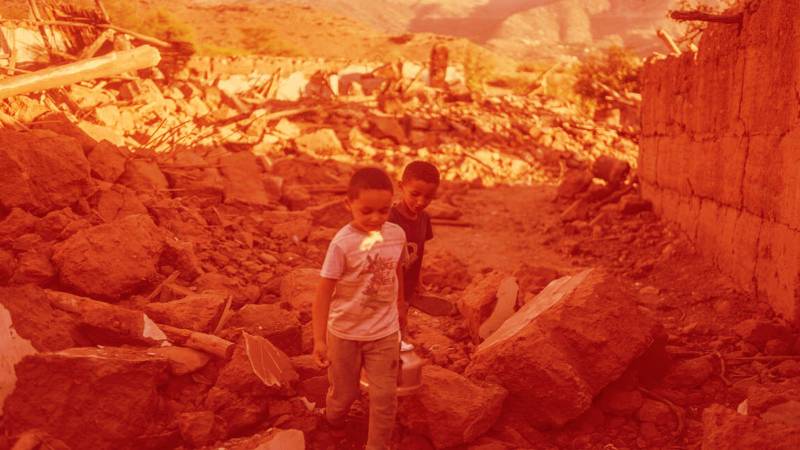
Following the devastating 6.8-magnitude earthquake that struck Morocco on Friday, which has so far claimed at least 2,012 lives and injured 2,059 others, over 1,000 of whom are in critical condition, a French specialist has warned of aftershocks in the country.
The High Atlas highlands to the southwest of Marrakech city were the site of the earthquake, which damaged ancient structures in the city closest to the epicenter while severely injuring other regions in the adjacent mountains.
According to Philippe Vernant, an expert in active tectonics at the University of Montpellier, Morocco is one of those countries where the question is not whether there will be earthquakes.
The Agadir earthquake (magnitude 5.7 in 1960) destroyed the entire city and killed almost 15,000 people, and more recently there was the Al Hoecima earthquake (magnitude 6.4 in 2004), further out on the Mediterranean.
The epicenter of the recent quake is not in the most active area of Morocco. But there are the High Atlas Mountains. This type of earthquake is what led to the rise of the High Atlas Range.
In Turkey, we had horizontal movement because Turkey is shifting to the west, moving towards Greece. There was a horizontal sliding of the tectonic plates.
Here, we're seeing more of a convergence between Africa and Eurasia, or Iberia, the Spanish part, and overlapping faults. But we are still dealing with plate boundaries.
After a deadly earthquake struck Morocco on Saturday, the country declared three days of national mourning, according to an announcement from the royal palace.
"Three days of national mourning have been decided, with flags to fly at half-mast on all public buildings," said the statement published by the official MAP news agency. The statement was released after King Mohammed VI chaired a meeting to discuss the disaster.
The meeting was called after the deadliest earthquake to hit North Africa in decades struck southwest of Marrakesh, a popular tourist destination, on Friday night.

